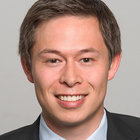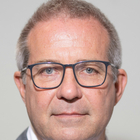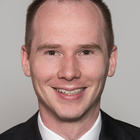The Current Column
Berlin: cautious launch for new global development cooperation
Janus, Heiner / Stephan Klingebiel / Timo MahnThe Current Column (2014)
Bonn: German Development Institute / Deutsches Institut für Entwicklungspolitik (DIE) (The Current Column of 17 March 2014)
Bonn, 17 March 2014. Berlin has the opportunity to lead the way in providing fresh impetus to global development cooperation on 20 and 21 March 2014 when the United Nations' Development Cooperation Forum (DCF) holds its high-level symposium in the city. What makes the DCF, which is little known outside expert groups, an important platform for future debates on development policy? This question can be answered by presenting four theses.
The former aid effectiveness agenda is now virtually non-existent. The implementation of the 2005 Paris Declaration that defines common quality standards for the provision of aid by donors belonging to the Organisation for Economic Co-operation and Development (OECD) is characterised by fatigue. One of the main reasons for this is the failure of donors (including Germany) to deliver on their promises for making aid more effective, despite announcements and commitments to the contrary. This observation is nothing new, having been confirmed by a relevant evaluation at the last High Level Forum on Aid Effectiveness in Busan, South Korea in 2011. Nonetheless, the trend has since stabilised and the issue has faded further into the background. Countries such as the UK that were once leading proponents of aid effectiveness are now promoting different priorities (“value for money”) in the international debate on development policy.
The new global development cooperation architecture must first prove its worth in practice. Existing structures were drastically reformed following the meeting in Busan. The Global Partnership for Effective Development Co-operation (GPEDC) was set up in mid-2012. Members will convene for the first time for a High-level meeting in Mexico in mid-April 2014, much later than originally planned – a sign of the ongoing differences of opinion between members. It is still hard to predict what sort of momentum the meeting will be able to generate. The UN's Development Cooperation Forum has been working to promote dialogue between donor countries, partner countries and dynamic emerging economies since 2008. Against this backdrop, there is still a serious lack of clarity as to the GPEDC's contribution. Pursuing South-South cooperation approaches, India, China, Brazil and South Africa in particular do not feel at home within the GPEDC given its OECD associations.
The existence of several parallel discussion platforms is creating confusion as to how development cooperation will work in future. Some fundamental questions have yet to be answered. Would not the United Nations be the more suitable (more legitimate) platform for debating the future of aid? Is it possible to resolve the issue of the DCF's limited influence to date and that of the intangible results of its meetings? It is time for these issues to be discussed in Mexico and at the DCF's main meeting in July 2014 in New York. However, this is precisely what many governments have tried their best to avoid doing to date. The political incentives to continue with parallel discussions on both platforms in order to maximise individual influence are too great, and this is by now having a detrimental effect on the efficiency of global aid provision.
The existing platforms must first prove their relevance for implementing the future development goals. For many months now, a great deal of time and effort has been ploughed into drafting a new global development agenda (“post-2015 debate”). The debate has an important contribution to moving things forward in the arduous process of achieving universal consensus on development goals, integrating challenges such as global sustainability and inequality into the arena of political action for example. Quite apart from the question of what such an agenda will look like going forward, there is a need to pay greater attention to the implementation of any future goals. The best case scenario would see the future agenda having a major impact on the behaviour of countries with regard to their development strategies. At the same time, the success of the agenda will also depend on whether the goals are supported by international cooperation efforts, including those of development cooperation actors.
It would of course be too much to expect the DCF to come up with satisfactory answers to all the emerging challenges at its meeting in Berlin. However, host country Germany, the United Nations and the invited delegates can at least identify and bring to the table the pressing issues and possible solutions to a greater extent than they have done in the past. These issues of concern include the raison d’être of GPEDC and its relationship with the DCF, as well as the very real need to merge the two forums.



